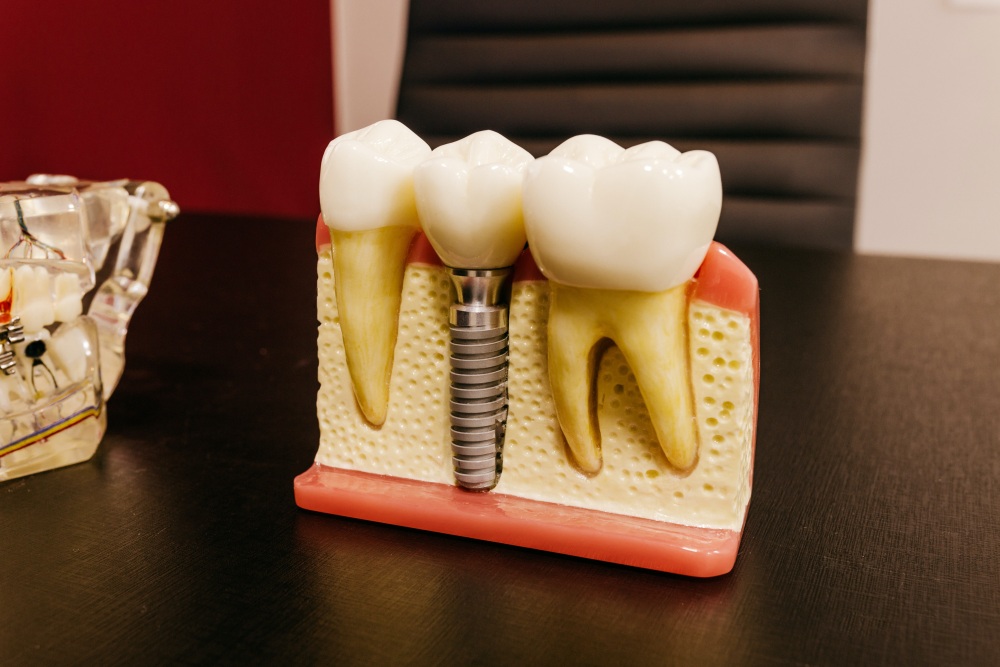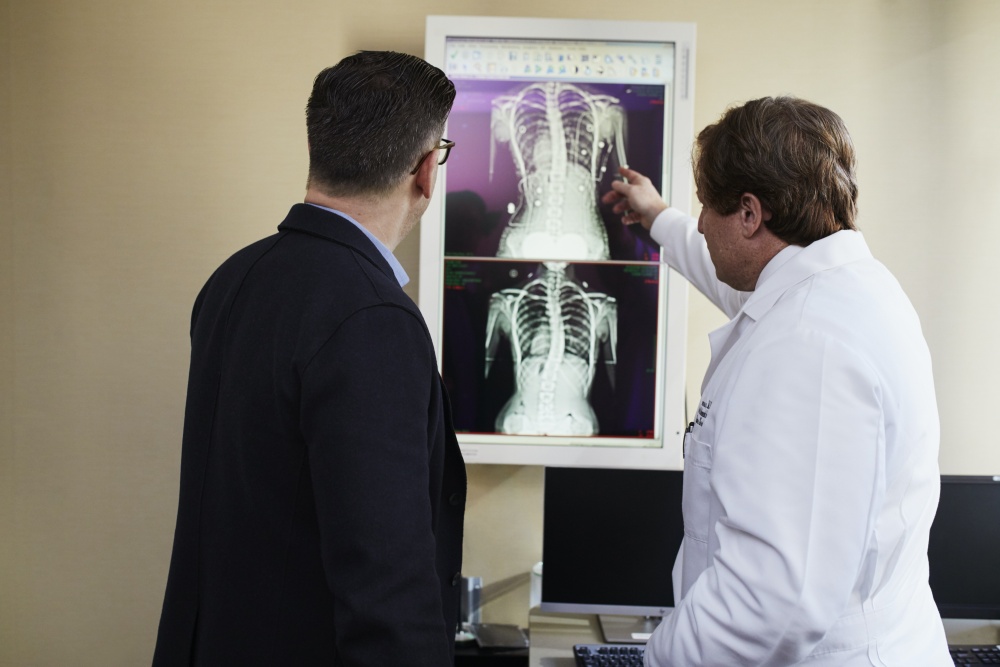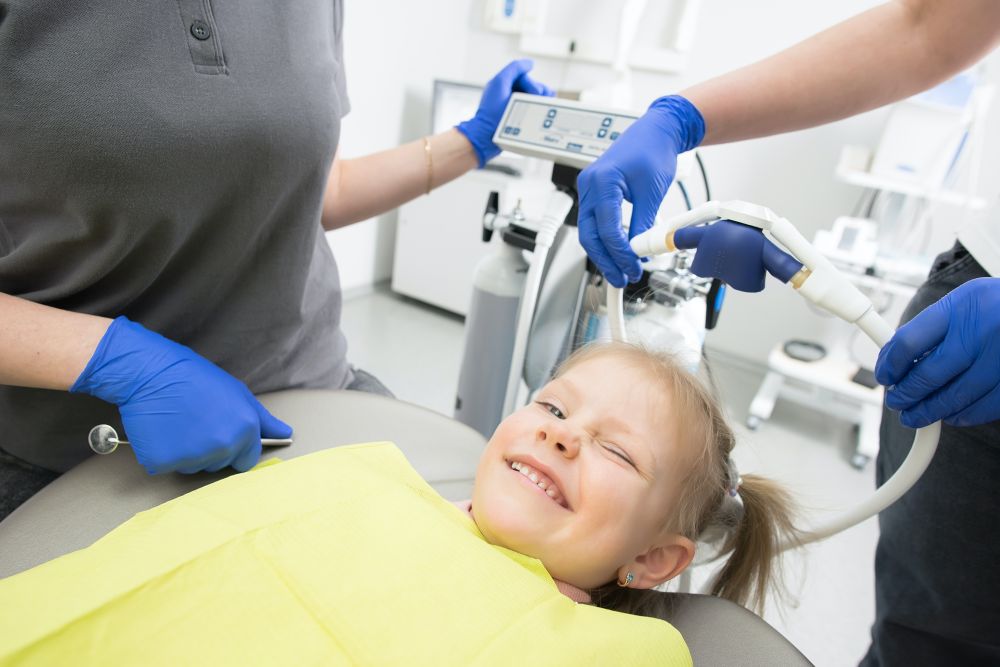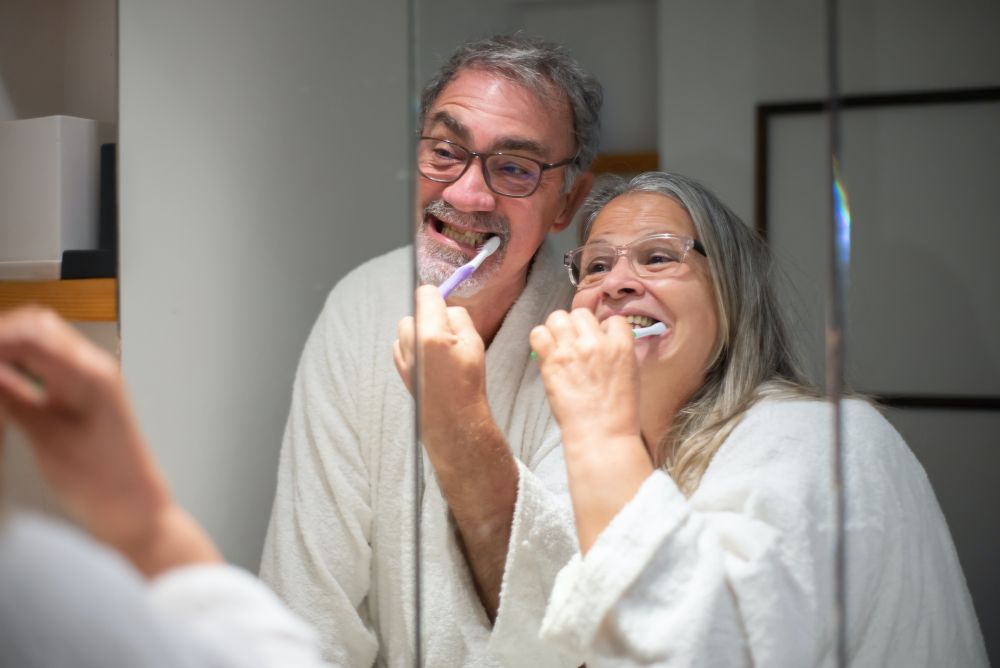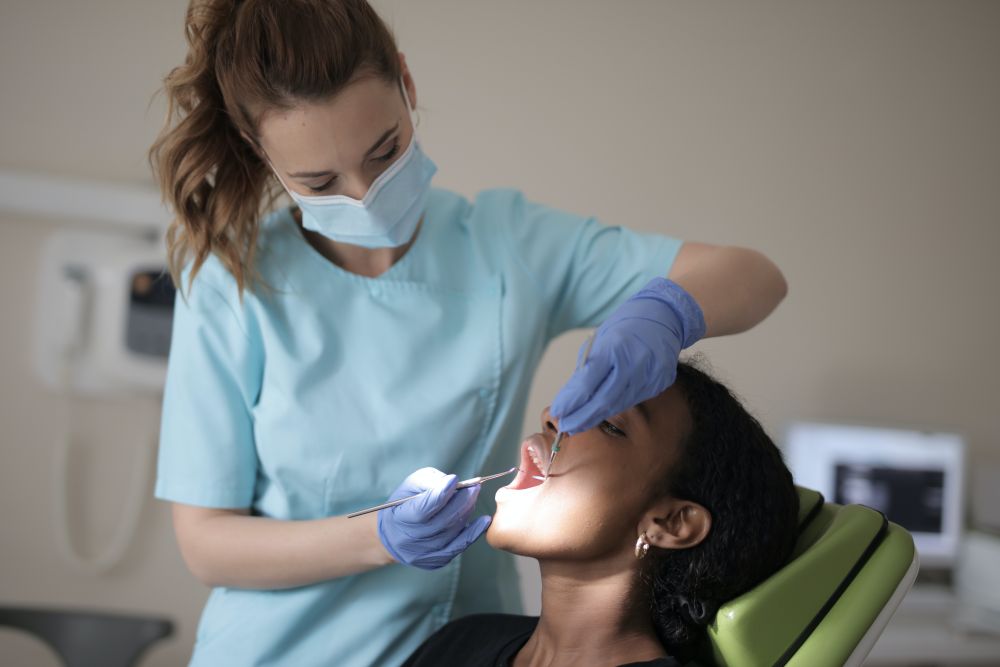Ask Me Anything: Why doesn’t medical insurance cover the mouth?
In our latest Ask Me Anything segment, one of The Dental Medical Convergence’s followers wanted to know why medical insurance does not cover dental needs. This is a great question. After all, the mouth is part of the body!
Tags
- healthy eating
- gingivitis
- Impact of Oral Health
- Dental infections
- dental cleaning
- gum disease
- oral cancer screening
- healthy diet
- cardiovascular disease
- Proper oral care
- oral systemic connection
- oral disease prevention
- oral health
- Proper oral hygiene
- flossing
- dentures
- electric toothbrush
- Dental care
- dry mouth
- Overall Health
- teeth brushing
- dental hygiene
- Oral-Systemic Link
- cavities
- healthy food choices
- Mouth and Body Connection
- gum infections
- periodontitis
- Dental Health Tips
- vascular disease
- mental health
- Health Warning Signs
- arterial plaque
- tooth infection
- Preventive Dentistry
- coronary heart disease
- dental disease
- Systemic Health
- dental health
- dental exam
- Oral Hygiene
Common dental disease linked to serious health problems
The CDC reports that almost half of Americans age 30 and over have some form of gum disease. That’s a lot of people affected by something that is preventable. It’s also concerning because if gum disease is not properly treated, it can lead to cardiovascular and respiratory problems, diabetic complications, and other diseases. That’s why we created a PDF guide, “How gum disease affects overall health,” to provide you with all the research, prevention tools, and helpful resources you need to prevent and/or treat this disease.
Tags
- healthy eating
- gingivitis
- Impact of Oral Health
- Dental infections
- dental cleaning
- gum disease
- oral cancer screening
- healthy diet
- cardiovascular disease
- Proper oral care
- oral systemic connection
- oral disease prevention
- oral health
- Proper oral hygiene
- flossing
- dentures
- electric toothbrush
- Dental care
- dry mouth
- Overall Health
- teeth brushing
- dental hygiene
- Oral-Systemic Link
- cavities
- healthy food choices
- Mouth and Body Connection
- gum infections
- periodontitis
- Dental Health Tips
- vascular disease
- mental health
- Health Warning Signs
- arterial plaque
- tooth infection
- Preventive Dentistry
- coronary heart disease
- dental disease
- Systemic Health
- dental health
- dental exam
- Oral Hygiene
How your sweet tooth affects your dental health
A piece of chocolate or a handful of gummy bears might satisfy your sugar craving, but how does that treat affect your dental health? One of our followers at The Dental Medical Convergence recently asked Dr. Chuck how they can still eat candy while preventing dental problems. This is a tricky question to answer.
Tags
- healthy eating
- gingivitis
- Impact of Oral Health
- Dental infections
- dental cleaning
- gum disease
- oral cancer screening
- healthy diet
- cardiovascular disease
- Proper oral care
- oral systemic connection
- oral disease prevention
- oral health
- Proper oral hygiene
- flossing
- dentures
- electric toothbrush
- Dental care
- dry mouth
- Overall Health
- teeth brushing
- dental hygiene
- Oral-Systemic Link
- cavities
- healthy food choices
- Mouth and Body Connection
- gum infections
- periodontitis
- Dental Health Tips
- vascular disease
- mental health
- Health Warning Signs
- arterial plaque
- tooth infection
- Preventive Dentistry
- coronary heart disease
- dental disease
- Systemic Health
- dental health
- dental exam
- Oral Hygiene
8 habits that hurt your teeth
While you use your teeth over and over throughout the day, certain things you do can harm your teeth. Read on to learn what to avoid doing and tips for correcting these habits.
Tags
- healthy eating
- gingivitis
- Impact of Oral Health
- Dental infections
- dental cleaning
- gum disease
- oral cancer screening
- healthy diet
- cardiovascular disease
- Proper oral care
- oral systemic connection
- oral disease prevention
- oral health
- Proper oral hygiene
- flossing
- dentures
- electric toothbrush
- Dental care
- dry mouth
- Overall Health
- teeth brushing
- dental hygiene
- Oral-Systemic Link
- cavities
- healthy food choices
- Mouth and Body Connection
- gum infections
- periodontitis
- Dental Health Tips
- vascular disease
- mental health
- Health Warning Signs
- arterial plaque
- tooth infection
- Preventive Dentistry
- coronary heart disease
- dental disease
- Systemic Health
- dental health
- dental exam
- Oral Hygiene
Why the oral-systemic connection matters
Caring for your teeth doesn’t just provide you with a great smile, white teeth, and fresh breath. Caring for your teeth also means you’re protecting your heart, your lungs, and your overall health. It’s all part of the oral-systemic connection. More and more research has emerged over the last 20 years to support the link between oral health and overall health. The Dental Medical Convergence is on a mission to share this important health information with patients, dentists, and doctors.
Tags
- healthy eating
- gingivitis
- Impact of Oral Health
- Dental infections
- dental cleaning
- gum disease
- oral cancer screening
- healthy diet
- cardiovascular disease
- Proper oral care
- oral systemic connection
- oral disease prevention
- oral health
- Proper oral hygiene
- flossing
- dentures
- electric toothbrush
- Dental care
- dry mouth
- Overall Health
- teeth brushing
- dental hygiene
- Oral-Systemic Link
- cavities
- healthy food choices
- Mouth and Body Connection
- gum infections
- periodontitis
- Dental Health Tips
- vascular disease
- mental health
- Health Warning Signs
- arterial plaque
- tooth infection
- Preventive Dentistry
- coronary heart disease
- dental disease
- Systemic Health
- dental health
- dental exam
- Oral Hygiene
Choosing summer snacks that will keep your family’s teeth healthy
The long, warm days of summer are here. Children are enjoying summer break, families are taking vacations, and routines often lose track. That’s OK! You can still continue proper oral care while enjoying the dog days of summer. When it’s hot outside, children often reach for juices, ice pops, and salty snacks to satisfy their cravings. Here are four of the best snack and drink choices for your teeth, and tips for preventing tooth decay.
Tags
- healthy eating
- gingivitis
- Impact of Oral Health
- Dental infections
- dental cleaning
- gum disease
- oral cancer screening
- healthy diet
- cardiovascular disease
- Proper oral care
- oral systemic connection
- oral disease prevention
- oral health
- Proper oral hygiene
- flossing
- dentures
- electric toothbrush
- Dental care
- dry mouth
- Overall Health
- teeth brushing
- dental hygiene
- Oral-Systemic Link
- cavities
- healthy food choices
- Mouth and Body Connection
- gum infections
- periodontitis
- Dental Health Tips
- vascular disease
- mental health
- Health Warning Signs
- arterial plaque
- tooth infection
- Preventive Dentistry
- coronary heart disease
- dental disease
- Systemic Health
- dental health
- dental exam
- Oral Hygiene
How to prepare your child for their first dentist visit
It’s important to introduce your child to oral health care at a very young age. This is beneficial in order to learn how to properly care for your child’s teeth, get them comfortable visiting a dentist on a regular basis and establish a love of oral hygiene that will last a lifetime.
The best way to get started is to visit a dentist at age 1 so you can learn the most effective way to properly clean your baby’s teeth. The dentist or hygienist can spend time with you, watching how you clean your baby’s teeth and offer corrections or suggestions. The baby sits on your lap in the dental chair. It’s more comfortable for the baby. A dentist wants a very positive experience for the baby and parent in order to establish a connection that makes visiting the dentist a routine part of life. It’s best to continue seeing the dentist every six months.
Tags
- healthy eating
- gingivitis
- Impact of Oral Health
- Dental infections
- dental cleaning
- gum disease
- oral cancer screening
- healthy diet
- cardiovascular disease
- Proper oral care
- oral systemic connection
- oral disease prevention
- oral health
- Proper oral hygiene
- flossing
- dentures
- electric toothbrush
- Dental care
- dry mouth
- Overall Health
- teeth brushing
- dental hygiene
- Oral-Systemic Link
- cavities
- healthy food choices
- Mouth and Body Connection
- gum infections
- periodontitis
- Dental Health Tips
- vascular disease
- mental health
- Health Warning Signs
- arterial plaque
- tooth infection
- Preventive Dentistry
- coronary heart disease
- dental disease
- Systemic Health
- dental health
- dental exam
- Oral Hygiene
How to help your kids build a lifetime of love for oral hygiene
Effective oral hygiene not only prevents cavities; research shows it can prevent cardiovascular disease, pregnancy and birth complications, and pneumonia. That’s why it’s a good idea to start caring for the mouth at a young age to build a lifetime habit. Children are like sponges. They absorb all the information they see and hear on a daily basis. Read ahead for tips to create a lifetime of love for oral hygiene at a young age.
Tags
- healthy eating
- gingivitis
- Impact of Oral Health
- Dental infections
- dental cleaning
- gum disease
- oral cancer screening
- healthy diet
- cardiovascular disease
- Proper oral care
- oral systemic connection
- oral disease prevention
- oral health
- Proper oral hygiene
- flossing
- dentures
- electric toothbrush
- Dental care
- dry mouth
- Overall Health
- teeth brushing
- dental hygiene
- Oral-Systemic Link
- cavities
- healthy food choices
- Mouth and Body Connection
- gum infections
- periodontitis
- Dental Health Tips
- vascular disease
- mental health
- Health Warning Signs
- arterial plaque
- tooth infection
- Preventive Dentistry
- coronary heart disease
- dental disease
- Systemic Health
- dental health
- dental exam
- Oral Hygiene
Save time and money on dental and health care
Today’s increasing everyday costs mean many Americans are looking for ways to save money. One simple way to save yourself time and money is on your at-home dental hygiene routine.
Cleaning your teeth the most effective way means you won’t have to spend money on dental problems like cavities and root canals, along with bigger health problems that can arise from oral infections, like cardiovascular disease. You don’t even need to spend money on a toothbrush. If you visit the dentist for a routine cleaning every six months, you’ll usually get a free one.
Tags
- healthy eating
- gingivitis
- Impact of Oral Health
- Dental infections
- dental cleaning
- gum disease
- oral cancer screening
- healthy diet
- cardiovascular disease
- Proper oral care
- oral systemic connection
- oral disease prevention
- oral health
- Proper oral hygiene
- flossing
- dentures
- electric toothbrush
- Dental care
- dry mouth
- Overall Health
- teeth brushing
- dental hygiene
- Oral-Systemic Link
- cavities
- healthy food choices
- Mouth and Body Connection
- gum infections
- periodontitis
- Dental Health Tips
- vascular disease
- mental health
- Health Warning Signs
- arterial plaque
- tooth infection
- Preventive Dentistry
- coronary heart disease
- dental disease
- Systemic Health
- dental health
- dental exam
- Oral Hygiene
Connecting patients, dentists, and physicians through oral care education
You could say Dr. Chuck Reinertsen’s interest in connecting the mouth to overall health began many, many years ago when he was a Boy Scout. “We learned about infections and how to clean a wound,” he told Dr. Jesse Green during a recent interview on The Savvy Dentist Podcast. That knowledge of caring for infections stuck with him until dental school. “We asked some of the instructors: ‘What about the infections in the mouth? Aren’t they going to get in the bloodstream?’” Dr. Chuck says they were told no because of an oral barrier, a myth he says has since been debunked.
Tags
- healthy eating
- gingivitis
- Impact of Oral Health
- Dental infections
- dental cleaning
- gum disease
- oral cancer screening
- healthy diet
- cardiovascular disease
- Proper oral care
- oral systemic connection
- oral disease prevention
- oral health
- Proper oral hygiene
- flossing
- dentures
- electric toothbrush
- Dental care
- dry mouth
- Overall Health
- teeth brushing
- dental hygiene
- Oral-Systemic Link
- cavities
- healthy food choices
- Mouth and Body Connection
- gum infections
- periodontitis
- Dental Health Tips
- vascular disease
- mental health
- Health Warning Signs
- arterial plaque
- tooth infection
- Preventive Dentistry
- coronary heart disease
- dental disease
- Systemic Health
- dental health
- dental exam
- Oral Hygiene
Podcast interview highlights importance of oral-systemic connection
More and more research has emerged in the last 20 years explaining the impact oral health has on overall health. In a recent podcast, Dr. Chuck Reinertsen discussed this growing body of research and why it’s time for doctors and dentists to connect over patient health. Dr. Jesse Green, host of The Savvy Dentist, asked Dr. Chuck about bridging the gap between medical professionals and about oral-systemic health in this podcast episode.
Tags
- healthy eating
- gingivitis
- Impact of Oral Health
- Dental infections
- dental cleaning
- gum disease
- oral cancer screening
- healthy diet
- cardiovascular disease
- Proper oral care
- oral systemic connection
- oral disease prevention
- oral health
- Proper oral hygiene
- flossing
- dentures
- electric toothbrush
- Dental care
- dry mouth
- Overall Health
- teeth brushing
- dental hygiene
- Oral-Systemic Link
- cavities
- healthy food choices
- Mouth and Body Connection
- gum infections
- periodontitis
- Dental Health Tips
- vascular disease
- mental health
- Health Warning Signs
- arterial plaque
- tooth infection
- Preventive Dentistry
- coronary heart disease
- dental disease
- Systemic Health
- dental health
- dental exam
- Oral Hygiene
3 ways to improve your oral hygiene routine
Caring for your mouth means caring for the health of your whole body. That’s why rethinking your oral hygiene routine could provide benefits beyond white teeth and fresh breath. It could mean avoiding cardiovascular disease, Alzheimer’s disease, and pregnancy complications. Dr. Chuck Reinertsen discussed the benefits of changing the way you care for your dental health during a webinar you can watch here.
Tags
- healthy eating
- gingivitis
- Impact of Oral Health
- Dental infections
- dental cleaning
- gum disease
- oral cancer screening
- healthy diet
- cardiovascular disease
- Proper oral care
- oral systemic connection
- oral disease prevention
- oral health
- Proper oral hygiene
- flossing
- dentures
- electric toothbrush
- Dental care
- dry mouth
- Overall Health
- teeth brushing
- dental hygiene
- Oral-Systemic Link
- cavities
- healthy food choices
- Mouth and Body Connection
- gum infections
- periodontitis
- Dental Health Tips
- vascular disease
- mental health
- Health Warning Signs
- arterial plaque
- tooth infection
- Preventive Dentistry
- coronary heart disease
- dental disease
- Systemic Health
- dental health
- dental exam
- Oral Hygiene
A journey in between
Cleaning your teeth should be a journey of exploration. Far too many people rush through the process and never get their teeth as clean as they need to be. To free your mouth of plaque buildup and bacteria, you need to take the time to give your teeth a thorough cleanse at least once per day. You need to focus on each tooth’s surfaces and venture into the hardest-to-reach nooks and crannies. Bacteria love to hide in these tight spaces between the teeth, and it’s where they often do the most damage — cavities and infections usually develop in the darkest, most hidden spaces in your mouth. Fortunately, we have lots of tools available to help reach the space between our teeth and keep them clean and healthy. The key is using them regularly and properly.
Tags
- healthy eating
- gingivitis
- Impact of Oral Health
- Dental infections
- dental cleaning
- gum disease
- oral cancer screening
- healthy diet
- cardiovascular disease
- Proper oral care
- oral systemic connection
- oral disease prevention
- oral health
- Proper oral hygiene
- flossing
- dentures
- electric toothbrush
- Dental care
- dry mouth
- Overall Health
- teeth brushing
- dental hygiene
- Oral-Systemic Link
- cavities
- healthy food choices
- Mouth and Body Connection
- gum infections
- periodontitis
- Dental Health Tips
- vascular disease
- mental health
- Health Warning Signs
- arterial plaque
- tooth infection
- Preventive Dentistry
- coronary heart disease
- dental disease
- Systemic Health
- dental health
- dental exam
- Oral Hygiene
It’s All About Teamwork
The Dental Medical Convergence is a non-profit organization that works directly with physicians. Its goal is to teach physicians how to incorporate oral health when evaluating their patients’ overall health. Both patients and physicians often incorrectly assume that if they aren’t experiencing any oral discomfort, they must have good oral health. This just isn’t the case! In fact, our bodies could be suffering the effects of numerous different health issues that stem from poor oral health or incorrect oral anatomy.
Tags
- healthy eating
- gingivitis
- Impact of Oral Health
- Dental infections
- dental cleaning
- gum disease
- oral cancer screening
- healthy diet
- cardiovascular disease
- Proper oral care
- oral systemic connection
- oral disease prevention
- oral health
- Proper oral hygiene
- flossing
- dentures
- electric toothbrush
- Dental care
- dry mouth
- Overall Health
- teeth brushing
- dental hygiene
- Oral-Systemic Link
- cavities
- healthy food choices
- Mouth and Body Connection
- gum infections
- periodontitis
- Dental Health Tips
- vascular disease
- mental health
- Health Warning Signs
- arterial plaque
- tooth infection
- Preventive Dentistry
- coronary heart disease
- dental disease
- Systemic Health
- dental health
- dental exam
- Oral Hygiene
3 ways to improve your oral hygiene routine
Taking proper care of your teeth and gums will save you time and money. It means less time spent in the dentist’s chair getting your teeth fixed and less money spent on dental care for health problems that poor oral care can cause. The way you clean your teeth makes a difference. This webinar explains the importance of a proper oral hygiene routine and teaches you the most effective ways to clean your mouth.
Tags
- healthy eating
- gingivitis
- Impact of Oral Health
- Dental infections
- dental cleaning
- gum disease
- oral cancer screening
- healthy diet
- cardiovascular disease
- Proper oral care
- oral systemic connection
- oral disease prevention
- oral health
- Proper oral hygiene
- flossing
- dentures
- electric toothbrush
- Dental care
- dry mouth
- Overall Health
- teeth brushing
- dental hygiene
- Oral-Systemic Link
- cavities
- healthy food choices
- Mouth and Body Connection
- gum infections
- periodontitis
- Dental Health Tips
- vascular disease
- mental health
- Health Warning Signs
- arterial plaque
- tooth infection
- Preventive Dentistry
- coronary heart disease
- dental disease
- Systemic Health
- dental health
- dental exam
- Oral Hygiene


